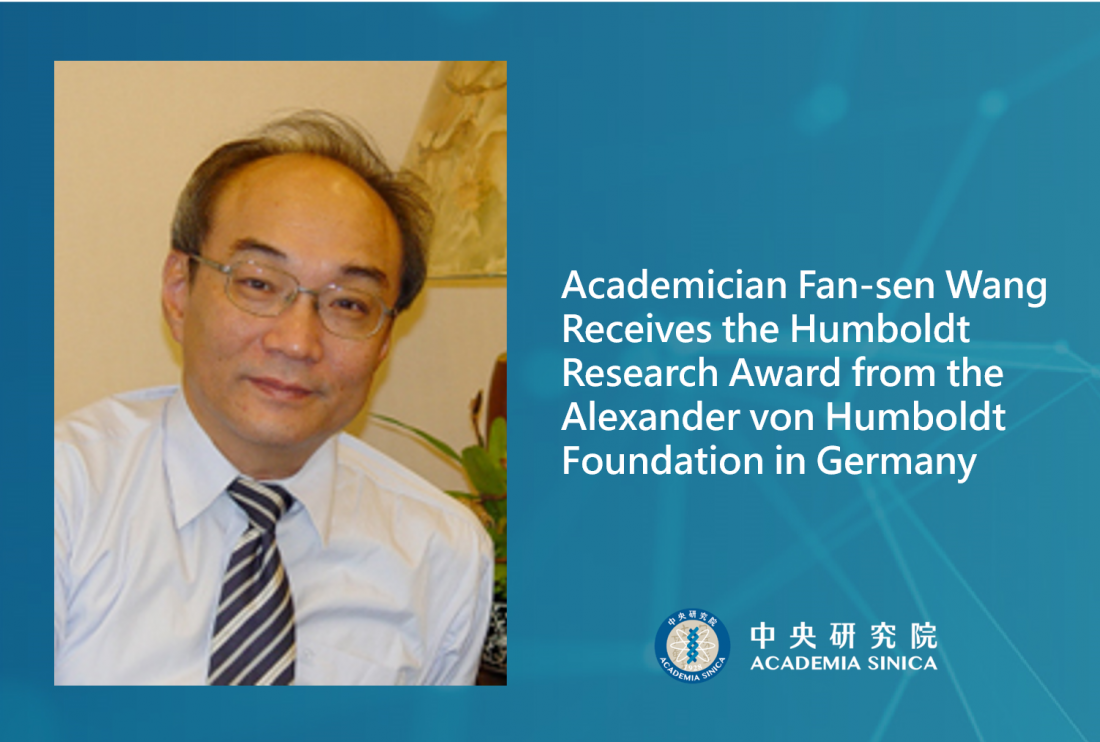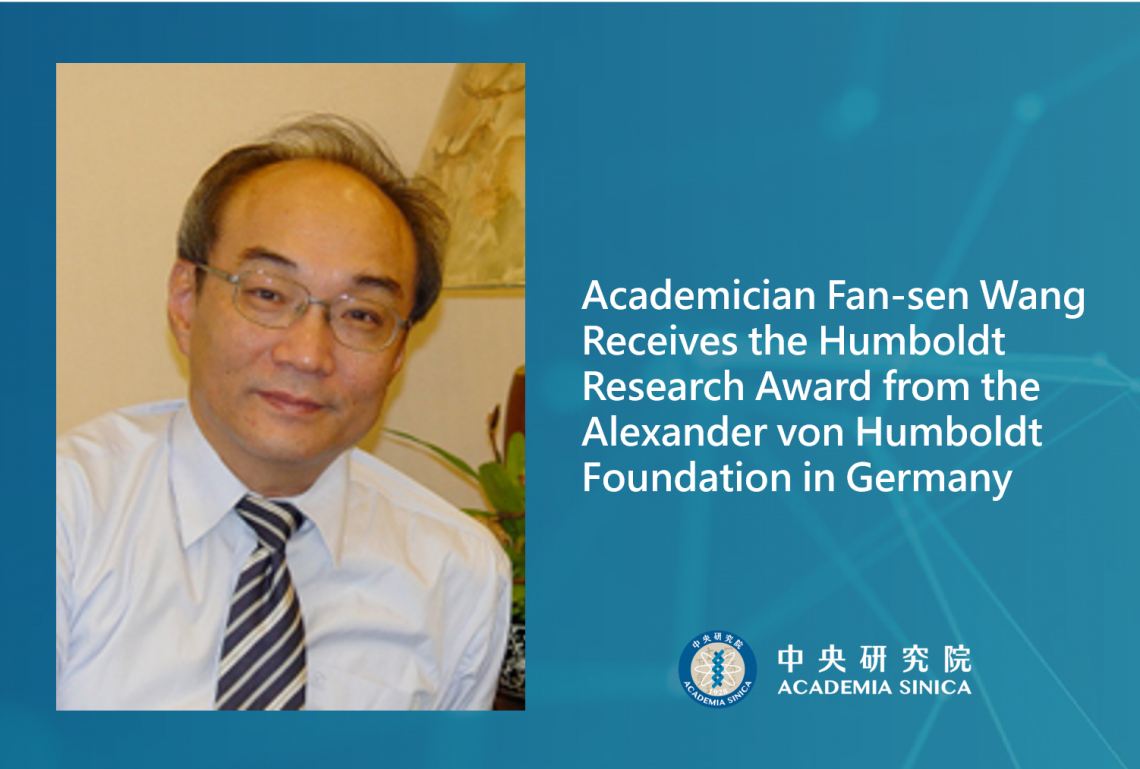Academician Fan-sen Wang has been awarded the 2023 Humboldt Research Award by Germany’s Alexander von Humboldt Foundation
Academician Fan-sen Wang has been awarded the 2023 Humboldt Research Award by Germany’s Alexander von Humboldt Foundation
Academician Fan-sen Wang has been awarded the 2023 Humboldt Research Award by Germany’s Alexander von Humboldt Foundation, in recognition of his achievements and impact on historical scholarship. He is the first Taiwanese scholar in the field of humanities to receive this honor.
The Humboldt Research Award is one of the most prestigious honors in Germany for internationally renowned scientists and scholars who live and work outside of Germany in recognition of their academic record. Recipients are "academics whose fundamental discoveries, new theories or insights have had a significant impact on their own discipline and who are expected to continue producing cutting-edge academic achievements in the future." The Humboldt Research Award for U.S. Senior Scientists was launched in 1972 as a thank-you to the USA for its support in rebuilding German science after the Second World War. Since 1972 this Prize has been awarded to nearly 2,000 scholars worldwide, most of whom are from the natural sciences and social sciences; winners from the humanities are relatively rare.
Academician Wang Fan-sen, Distinguished Research Fellow of the Institute of History and Philology, Academia Sinica is an historian specializing in the cultural-intellectual history of early modern and modern China (circa 1500 to 1930). He has written 12 books on the intellectual history of China from the Ming Dynasty to the Qing Dynasty and the early republican era. His works include Fu Ssu-nien: A Life in Chinese History and Politics; The Rise of the Ku-shih-pien Movement; Chang T’ai-yen and His World; The Geneology of Modern Chinese Thought; Ten Essays on Ming and Qing Intellectual History; The Historian and the Historiography in Modern China; The Capillary Effects of Power: Intellectual, Mentality and Scholarship in Ch’ing Period; and Intellection as a Way of Life.
The selection committee of The Humboldt Research Award is composed of approximately 22 academics from all disciplines. The committee makes its decision based on independent peer reviews and the nominees’ academic qualifications. The main selection criteria are the nominee’s outstanding international reputation as a researcher, publications with a demonstrable impact that extends beyond the nominee’s immediate field of work, and the significance of the awarding of a research prize in relation to the position of the recipient’s field of work in Germany.
The Alexander von Humboldt Foundation was initially established in 1860. Its functions and development have gone through many changes until being re-established by the government of the Federal Republic of Germany in 1953, and it has become one of the most important foundations in Germany. The prize is currently valued at €60,000, with the possibility of further support during the prize winner's life. In addition, award winners are invited to carry out research projects of their own choice in cooperation with specialist colleagues in Germany to promote international scientific cooperation.
The Alexander von Humboldt Foundation: http://www.humboldt-foundation.de/web/home.html




